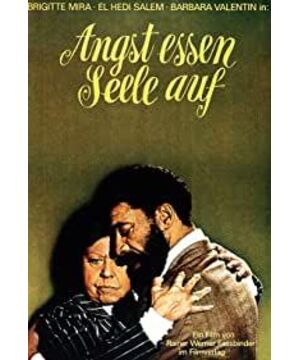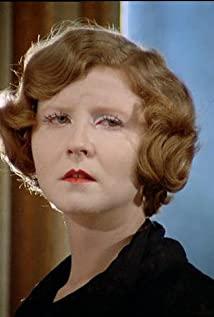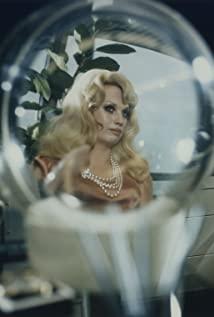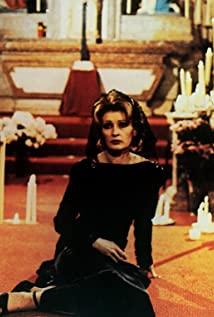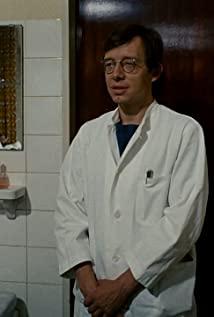"Fear Eats the Soul" is a film about the lives of ordinary people. It is a love story written by two men and women of different ages and nationalities, who both feel lonely. But this love is opposed by family members, neighbors, colleagues and society, who feel terrified and go out on vacation to escape the status quo. After returning, the external factors changed. The attitude of the son, neighbors, and shop owner towards Amy was uncharacteristic, but the internal differences between Amy and Ali emerged. Amy is not interested in sex at an old age, and her son and neighbors have changed from being different to accepting them; Ali is the opposite, so she is unhappy, so she has to go to sleep with the waitress Barbara, and drink and gamble for entertainment. The relationship between the two is getting more and more distant...
Fassbender's narration of this undeserved love story happened, and its real possibility is revealed in the film. But Fassbender himself believes that if the relationship between Amy and Ali continues to develop, the story does not know how to write.
A pair of lovers wants a little bit of happiness, but they are so different and in that social environment that they can't be happy forever. Therefore, the introduction of the film first tells people that "happiness is not always happy", and a meaningful scene has already been arranged in the film: Amy invites all the children to the house, hoping to celebrate her new marriage together, from which Have fun, but the children can't understand that the mother found a young and dirty Moroccan, the younger son kicked the TV to smash, and everyone broke up. This scene is the director's foreshadowing, reflecting his point of view that such an incongruous marriage will end like this TV. If love is so difficult, it is impossible to be happy, happy!
From the screenwriting of this story to the screen reflects Fassbender's own criticism of society. The first is the prejudice, exclusion and unfair treatment of foreign workers in German society, and the second is the analysis of the loneliness of the elderly in society and the need for family warmth. He revealed that the causes of tragedy are differences in the identity, gender, and age of the characters; discrimination and misunderstanding from society; and the helpless manipulation of fate (due to Fassbender's class position, he could not use a class point of view to analyze) , so the characters in the film are always trapped in tragedy and cannot extricate themselves, just like the doctor said to Amy at the end of the film: "Ali suffers from a severe gastric ulcer, which is a common disease of foreign workers and will recover, but after half a year It will relapse again." The whole work shows the director's subtle sense of loss and the courage to analyze complex life.
Fassbender's oeuvre has its striking personality, and his films are his life. A reporter asked him in an interview: "What makes a perfect film?" Fassbender replied: "In my opinion, the best film is the most personal film." He believes that any life story They all have a very close relationship with melodrama, and people's daily life is formed by countless melodramas, so he believes that melodrama movies should become regular movies, but let people see the other side of melodrama. , is to contain the criticism of life and society in the film. Therefore, Fassbender's attention to all strata of German society and his insight into various social problems have extraordinary vision and depth. He does not make any films without political content. He often exposes social injustice, criticizes society's oppression of people, and explores reality by carefully depicting the specific social environment in a specific historical period and the fate of characters in a specific class. The relationship between people in society. Fassbender once said: "I am a German who shoots German films for German audiences." It can be seen that Fassbender is a film director with a high sense of social responsibility and mission. His films have also become political documentaries calling for social change. Most of his films deal with contemporary German social problems: bigotry, discrimination, xenophobia, social alienation, the loneliness of the elderly, the difficulties of interpersonal communication in a society that has lost and stifled individuality, exploitation and betrayal of the soul, etc. Fear Eats the Soul is one such example.
The reason why Fassbender has been gradually accepted by many audiences and has become an expert in shaping the dilapidated image of contemporary society is that on the one hand, he retains the traditional Hollywood methods, and on the other hand, he uses anti-narrative methods to destroy the illusion of reality. Hollywood melodrama master Douglas Silk once said: "My wife and I went to see "Fear Eats the Soul" together, which is the most beautiful and best film Fassbender has ever made. Worship Silk. From seeing Silke's films at a film retrospective in Munich in 1970, Fassbender often visited Silke in Switzerland, and the two developed a friendship. Fassbender thinks Silke's film is more in line with his intentions. From Silke's cinematic language he draws the dual components of aesthetics: alienation and interpretation. One of Silke's favorite films is "Imitating Life", because the ordinary people in this film live like a prison, cut off from the world. Fassbender's "Fear Eats the Soul" is obviously an imitation of Silk's "Pure Providence". He focused on the essence and least attractive aspect of everyday life, the unwelcome foreign worker. He employs several techniques of melodrama, such as elaborate lighting, exaggerated and attractive images, dazzling interiors, the use of reflections in the mirror, and the sudden burst of music at important moments.
In "Image Structure", Fassbender's most striking technique is to comment on the character by integrating the character with the background environment through the position of the camera. For example, Ali went to Barbara, the waitress twice, to have sex in her room, it was almost a mechanical movement, and the camera was placed at the end of the corridor, shooting without changing any angles, as if watching the embrace of the man and the woman , undress each other until they go to bed, and then the picture fades and disappears.
Fassbender also likes to change the camera angle frequently, from the subjective point of view of the characters in the film to the point of view of a possibly omniscient observer, with little subjectivity, and back again. Through this frequent interleaving of lens angles, he synthesizes a viewpoint with multiple deconstructions. This transformation of perspective creates confusion in the audience and keeps the audience's expectations under control. For example, in Fear Eats the Soul, the camera is placed on the sidewalk in front of Amy's apartment building, and from street level, the two protagonists—the lovers in this case, bid farewell to each other discreetly and tenderly. This scene is also a bit optimistic, but when Ali and Amy broke up, the atmosphere of this scene was quickly destroyed, and the camera panned up the side of the building, revealing that each one of them was doing nothing wrong and was very malicious. The neighbor, the fat woman was leaning out the window and watching them maliciously as they walked out together and then left separately. The sarcasm implied by this sudden change of viewpoint makes the viewer realize that he is peeking, not only into the lives of Amy and Ali, but also into the secret vices of that neighbor. It requires the viewer to be aware that they are an observer and to be hostile to the values and judgments of this neighbor, while at the same time containing the possibility that they will be hostile to their own values and judgments.
An ingenious visual mapping that transforms that melodrama's stereotype of doing nothing wrong with neighbors into a powerful distraction that allows you to go beyond immediate emotional impulses and evoke a critically rational attitude.
From "Fear Eats the Soul", we can see that Fassbender is a talented director. He lived only 36 years old, but in this short life, he made 43 films, many of which won International acclaim, which no other director can compare to him. He himself said: "I am the lucky one on this earth." New German cinema created Fassbender, and Fassbender's works were very different in style, adding luster to New German cinema.
View more about Ali: Fear Eats the Soul reviews


